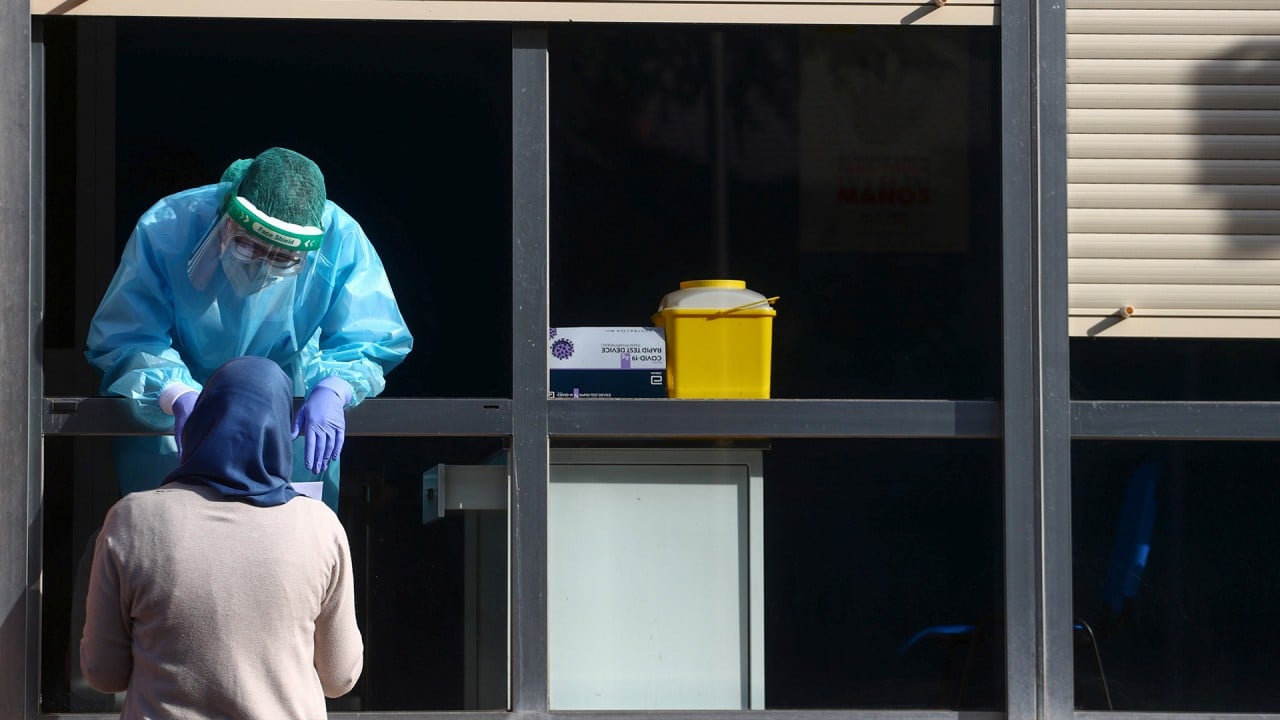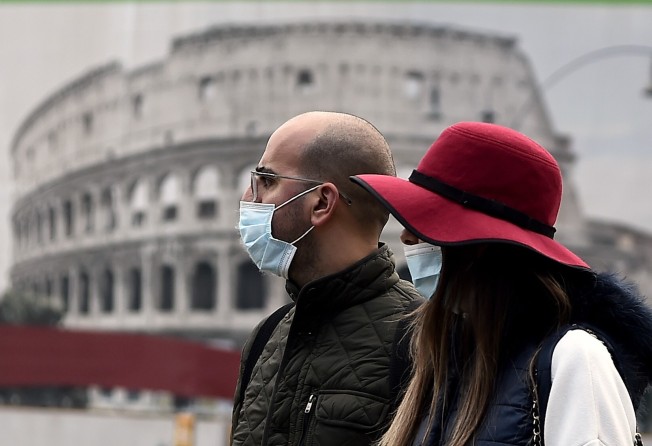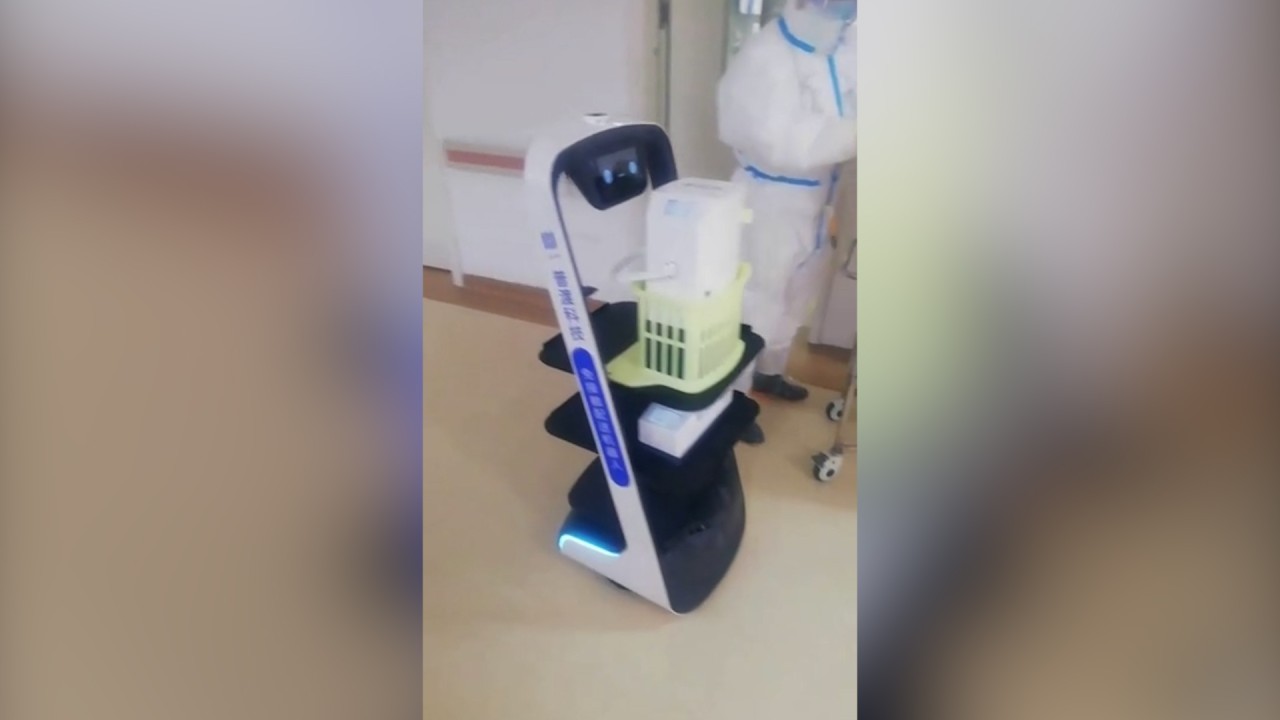
04:06
Stepped-up Covid-19 restrictions ‘absolutely necessary’ as Europe enters new wave ahead of winter

Italian Premier Giuseppe Conte has announced new measures aimed at halting the spread of coronavirus as Europe passed the milestone of 250,000 deaths from Covid-19.
European nations have ratcheted up restrictions on daily life to tackle soaring infections, with a 44 per cent increase in cases the past week.
The restrictions announced in Italy on Sunday stop short of a curfew like those imposed in Paris and other major French cities. But Italian mayors can close public squares and other gathering places after 9pm, permitting access only to reach homes or businesses.
Restaurants and bars are restricted to table service only after 6pm, three hours earlier than the previous measures allowed, but can maintain the current midnight closing time.

04:06
Stepped-up Covid-19 restrictions ‘absolutely necessary’ as Europe enters new wave ahead of winter
Local festivals have been banned. Gyms and public swimming pools may remain open – but Conte said they would be closed in a week if they do not do a better job of following restrictions.
Rome clashed with regional governments over schools, refusing to budge on allowing more distance learning. But there are allowances for high schools to open later, and hold afternoon shifts, to ease pressure on local transport.
Authorities are loath to see new lockdowns, after the 10-week closure that successfully impeded the virus’ spread, but at a cost of €47 billion (US$55 billion) a month to the economy. New confirmed infections in Italy have doubled in a week to more than 10,000 a day amid increased testing.
The government has agreed to earmark an additional €39 billion to tackle the coronavirus crisis and support its economy, the third largest in the euro zone.
Europe’s death toll makes it the second-hardest hit region after Latin America and the Caribbean, where fatalities have surpassed 350,000.
Britain remains Europe’s worst-affected country in terms of deaths, accounting for almost one-fifth of fatalities on the continent. It continues to struggle against the virus, with local officials resisting attempts by ministers to impose restrictions by region.
France counted nearly 30,000 new cases on Sunday, close to Saturday’s record 32,427 cases. Some 1,900 Covid-19 patients are currently occupying intensive care unit beds, out of France’s total capacity of 5,800.
The government has introduced a 9pm-6am curfew for at least a month in nine cities including Paris, affecting 20 million people. Those flouting the curfew face a fine of €135 (US$158) unless they can prove they have a valid reason to be out.
The measures fall short of the blanket confinements imposed in many countries earlier in the year – but raise fears of new, severe restrictions across the continent.
Meanwhile, Israel and Australia’s second-largest city of Melbourne have begun to gradually ease their strict lockdowns.
Israel has managed to flatten its outbreak through draconian measures including a ban on travelling more than a kilometre from home. The government lifted that restriction on Sunday and reopened kindergartens, beaches and national parks.
The authorities, however, are now mindful of declaring victory too early– Israel suffered one of the highest rates of infection in the world after quickly lifting an earlier lockdown.
“This time we are moving cautiously,” Prime Minister Benjamin Netanyahu said.
In Australia, Melbourne has managed to control its upsurge in cases and officials were able to allow the city’s five million inhabitants to leave their homes for more than two hours a day for the first time in three months.
While people will be allowed to travel up to 25km (15 miles) from home if they have valid reasons, restaurants and other businesses in Melbourne remain closed.
Two weeks ago, New Zealand Prime Minister Jacinda Ardern had declared her country had beaten the virus again – but a new community case of Covid-19 has now been confirmed, punching a hole in her assertion.
Ardern’s Labour Party won a landslide election victory on Saturday, with her government’s handling of the pandemic widely credited as a factor.

00:56
Chinese hospital uses robot to test for coronavirus in air
Meanwhile, a new study in Japan has found that the coronavirus remains active on human skin for nine hours.
In comparison, the pathogen that causes the flu survives on human skin for about 1.8 hours, according to the study published this month in the Clinical Infectious Diseases journal.
The research team tested skin collected from autopsy specimens, about one day after death. They concluded that frequent hand washing is the best way to combat the pandemic.
“The longer survival of Sars-CoV-2 on the skin increases contact-transmission risk; however, hand hygiene can reduce this risk,” the study said.
Associated Press and Agence France-Presse